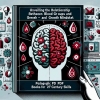Joseph Nye on global power in the 21st century, the full lecture at Central European University
Joseph Nye, one of the most influential international theorists, released its latest book titled The Future of Power. In one of his lecture, Nye delivers his explanation and prediction on the changing nature of international politics. According to Nye, in the twentieth century there will be two trends, the first is there will be power transition from the west to the east. The second is there will be power diffusion from states to non-state actor, whether it is west or east. The trend is economic power start to grow from Japan, Bussan, to the Korea, and then some Southeast Asian countries and focusing on China and India with their magnificent growth rate.
- The full lecture can be watched via this link http://www.youtube.com/watch?v=uAb8Z_l4aQI
In respond tothe current sentiment that US power is declining, especially when it compare to the rising Brazil, Russian, India and China (BRIC) countries, Nye seen it as false conception. “It is very hard for China to coupling up with US in a couple of decades,” said Nye. For Nye, the cycle of a country is unpredictable and it is too early to call that US power is declining.
Nye highlighted on a very interesting issue about increasing of China soft power. As the power raise, the China has to balance its hard power in terms of political and economic power with the soft power. Without this balance, many countries, especially from its neighbor will have a fear toward China’s development. This is the reason why the government of China has spent much money to invest in soft power development, such as investment in education, aid, etc. But unfortunately, China will not be able to catch up with the level of soft power from United States. Why? It is because United States’ soft power does not come from the government elites or bureaucrats. It is the civil society, such as academia, NGO worker, Hollywood and media that produce United States soft power. If China remains authoritarian and filled with negative sentiment toward civil society development, it will be difficult for Chinese government to maximize its soft power.
The problem that Nye raised is on the fact that power transition tends to create instability, just like what happened during the raise of Germany which believed to create the First World War. Nye believes that the power transition has to be managed in order to prevent the instability, especially when it turns in to United States and China relation. Based on his observation from various war in the previous historical times, the insecurity resulted from the rising of China will end up with instability. There are several ways in managing this transition; the first one is in creating more cooperation between countries. Cooperation, Nye believes, is the magic word to prevent such war. The other is to change the conception of power. In the traditional context, power is translated in to the capability to have a sphere of influence towards other. It’s a zero sum game; the power of one actor is the loss for the other actor. A more optimistic of power will enable countries to cooperate and create peace.
Another important issue highlighted in the shifting of powers in the twenty century is about the power diffusion from state actor to the non-state actor. Thanks for the advance information technology, now many actor can have direct access to decision making process and political issues. Previously it is very hard to be conducted due to the cost barrier. For example, in managing communication between two nations, the only actor who can do that is only state actors or big companies. Nowadays, to make inter-continental call is just that cheap, even free.In the previous times, the act of spy only can be done by countries like United State and Soviet Union. It cost them millions of dollar to have a picture of certain area from the space. Today, any of us can go on google earth and have a picture. This information technology enable non state actor to distribute knowledge and capacity.
The presence of internet has give incredibly capacity building for every single individual.This issue has a positive impact but also give the negative one at the same time. Through cheap communication, civil society can manage their network to have global campaign and to influence global agenda. But at the same time, the cheap communication also gives benefit for actors like Al-Qaeda. From the cheap technology which develop the capacity to coordinate deadly terror attack in across the world.
A Personal Note
The title of the book, the Future of Power is a little bit ambitious for me. Well, since Nye is a Harvard Professor, he already got the experience, knowledge and ability needed to write such books. At the same time, I have to admit that the idea of explaining this transition and diffusion power is genius. The story of international political constellation in the twenty century is well explained by Nye.
Now, how can Indonesia and other developing countries cope with the changing of international environment? The economic instability from the US to the Europe has created a spark of hope to the Asia continent. Many economic and political analysts believe that the economic growth of Asian Countries will provides the way outfor world’s economic problem. This situation has raised extremely expectation on the future of Asian countries, including Indonesia.
China will be one of the countries that enjoy the changing situation. It already proved that the economic instability only give insignificant influence towards its development growth. The investment and capital will shift to most of Asian countries. Utilizing the instability of international economy nowadays, Indonesia and other developing countries will have a chance to create their ladder path to development. But this only happen if developing countries could manage their internal political and governance situation. Otherwise the momentum will pass away and leave us with nothing.









